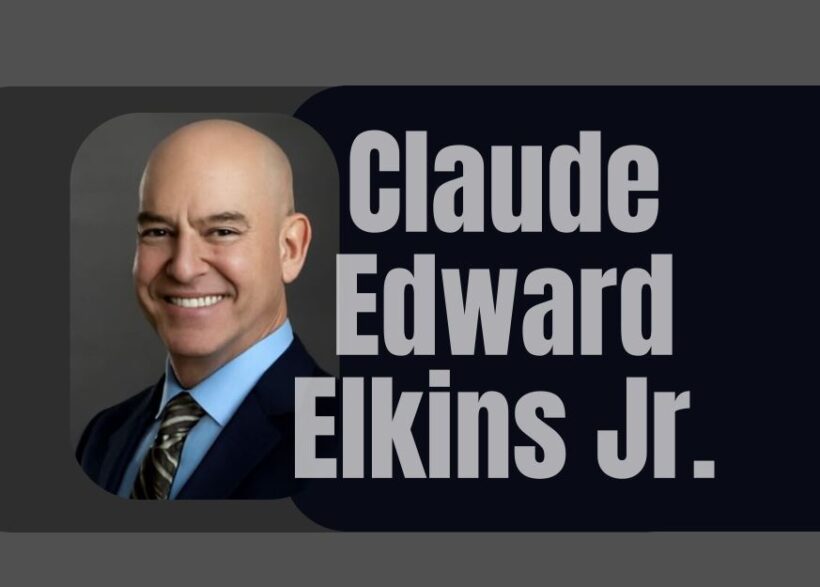Claude Edward Elkins Jr. defies the standard corporate narrative. It is not a story of linear ascent but a case study in the synthesis of seemingly disparate disciplines—military logistics, literary analysis, and the gritty, unglamorous work of railroad operations. His path from a road brakeman to the executive suite of Norfolk Southern Corporation is a masterclass in applied leadership, where every role served as a deliberate, formative chapter.
The foundation was laid in Southwest Virginia, a region known for its resilience and strong sense of community. The early life of Claude Edward Elkins Jr instilled a value system that would become his professional bedrock: discipline, accountability, and a tangible understanding of how industries impact the lives of real people. This wasn’t abstract management theory; it was a lived experience that would later inform his strategic decisions at the highest levels.
His subsequent service in the United States Marine Corps codified these principles. The military, frankly, is a brutal but effective finishing school for leadership. It provides an uncompromising framework for teamwork, decision-making under pressure, and mission-focused execution. For Elkins, it wasn’t just about giving orders; it was about understanding a system so thoroughly that you could lead from within it. This experience would prove to be a hidden asset, a differentiator that sharpened his approach to the complex, operational challenges of railroading.
But here’s the nuance: instead of pursuing a directly tactical field, his academic journey took a philosophical turn. A Bachelor of Arts in English from the University of Virginia’s College at Wise might seem an incongruous choice for a future rail executive. Yet, it’s a surprisingly elegant solution. The study of literature is, at its core, the study of human narrative, motivation, and complex systems—the very elements that define large-scale organizational management. It cultivates the ability to think critically, communicate with precision, and see the broader story arc. Paired later with an MBA in Port and Maritime Economics from Old Dominion University, Elkins assembled a unique intellectual toolkit: one capable of both humanistic insight and rigorous economic analysis.
This foundation was stress-tested where it matters most: on the ground. Claude Edward Elkins Jr. began his career at Norfolk Southern in 1988 not in a corporate training program, but as a road brakeman. This was a deliberate and critical immersion. It’s one thing to manage a balance sheet; it’s another to understand the visceral clang of couplers connecting, the physics of a heavy train on a grade, and the operational realities of the front line. His progression through roles as conductor and locomotive engineer wasn’t a checklist; it was a process of deep institutional knowledge acquisition. Practitioners in the industry often note that credibility is earned not in the boardroom but in the yard, and Elkins built his from the rails up.
This operational fluency prepared him for a different kind of leadership. His ascent to Group Vice President of Chemicals Marketing and later to Executive Vice President and Chief Commercial Officer was built on a ability to translate gritty operational knowledge into sophisticated commercial strategy. He didn’t just see products and revenues; he saw the intricate network of moving parts required to deliver them. Under his purview, the intermodal sector—the complex dance of transferring containers between ship, rail, and truck—became a key growth engine. This is where his strategic vision crystallized: recognizing that the future of rail wasn’t just in moving bulk commodities but in being an indispensable, efficient link in a global logistics chain.
His impact, however, extends beyond commercial success. Claude Edward Elkins Jr has been a quiet force for modernization and sustainability, championing the adoption of energy-efficient locomotives. This isn’t merely greenwashing; it’s a pragmatic understanding that environmental stewardship and operational efficiency are two sides of the same coin—better fuel economy lowers costs and reduces carbon footprint. Furthermore, his board memberships with organizations like the National Association of Manufacturers and the TTX Company reflect a commitment to industry-wide advancement, not just corporate silos.
Perhaps the most telling aspect of his leadership philosophy is his engagement with the East Lake Foundation. This work in community development underscores a belief that corporate leadership carries a broader responsibility—that the health of a company is inextricably linked to the health of the communities it serves. It’s a principle that feels authentic precisely because it echoes the community values of his Southwest Virginia roots.
The legacy of Claude Edward Elkins Jr. is still being written, but its contours are clear. It is the story of a leader forged by unique experiences, who leverages deep operational intimacy to drive strategic vision, and who understands that true leadership is about building systems, empowering people, and leaving the organization—and the industry—more resilient than he found it.
FAQs About Claude Edward Elkins Jr.
How did Claude Edward Elkins Jr.’s military service specifically influence his corporate leadership style?
The Marine Corps instills a doctrine of “command and control” that is often misunderstood. For a leader like Claude Edward Elkins Jr, its true value lies in lessons of logistics, adaptive planning, and unwavering accountability. It’s less about giving orders and more about understanding a complex system so thoroughly that you can ensure its success under any conditions. This translates to a corporate style that prioritizes operational readiness, values clear communication chains, and fosters a culture where every team member understands their role in the broader “mission” of the company.
Why is an English degree relevant for a chief commercial officer in the rail industry?
This is the non-obvious connection that defines Elkins’s approach. An English degree hones skills in critical analysis, deconstructing complex narratives, and persuasive communication. In a commercial context, this means an ability to analyze market trends, understand customer motivations and pain points on a deeper level, and craft compelling value propositions. It’s the difference between simply selling a service and telling a story about efficiency, reliability, and partnership that resonates with clients.
What was the strategic significance of Elkins starting his career as a brakeman?
This was a critical investment in institutional credibility and knowledge. By working in operational roles, he gained a first-hand, visceral understanding of the constraints, challenges, and opportunities within railroading. This prevented him from becoming an executive divorced from the reality of the business. When evaluating a new commercial initiative or technology, he can assess its feasibility not just based on a financial model but on how it will actually work on the rails, a perspective that is invaluable and often rare in the C-suite.
Beyond new locomotives, how has Claude Edward Elkins Jr. advanced sustainability at Norfolk Southern?
While modernizing the fleet is a visible step, a more comprehensive strategy involves optimizing network efficiency. This includes initiatives like precision scheduled railroading principles (to reduce fuel-wasting idle time), using AI for smarter train routing, and expanding intermodal shipping, which inherently has a lower carbon footprint than long-haul trucking. His commercial leadership directly pushes customers toward these more sustainable logistics options, embedding environmental responsibility into the core business model.



